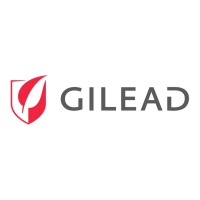Gilead (GILD), Merck (MRK) Announce Agreement to Jointly Develop and Commercialize Long-Acting, Investigational Treatment Combinations of Lenacapavir and Islatravir in HIV

Get Alerts GILD Hot Sheet
Join SI Premium – FREE
Gilead Sciences, Inc. (Nasdaq: GILD) and Merck (NYSE: MRK), known as MSD outside the United States and Canada, today announced that they have entered into an agreement to co-develop and co-commercialize long-acting treatments in HIV that combine Gilead’s investigational capsid inhibitor, lenacapavir, and Merck’s investigational nucleoside reverse transcriptase translocation inhibitor, islatravir, into a two-drug regimen with the potential to provide new, meaningful treatment options for people living with HIV.
Islatravir and lenacapavir are both potentially first-in-class medicines in late-stage clinical trials, with significant clinical data generated to date. Both medicines have long half-lives and have demonstrated activity at low dosages in clinical studies, which support development as an investigational combination regimen with long-acting formulations, both oral and injectable.
The first clinical studies of the oral combination are expected to begin in the second half of 2021. Under the terms of the agreement, Gilead and Merck will work as partners, sharing operational responsibilities, as well as development, commercialization and marketing costs, and any future revenues.
Merck and Gilead seek to build on their legacies of transforming HIV care by focusing on long-acting therapies, which may represent a meaningful innovation in HIV drug development. While daily, single tablet regimens are available for people living with HIV, options that would allow for less frequent, oral dosing or infrequent injections rather than daily dosing have the potential to address preference considerations, as well as issues associated with adherence and privacy.
As the field of HIV treatment evolves, long-acting therapies may provide additional options for people living with HIV and their physicians that will help continue to put the needs of individuals at the center of their own care.
“At Merck, we are resolute in our commitment to advancing the care of people living with HIV as part of our mission to save and improve lives,” said Kenneth C. Frazier, Chairman and Chief Executive Officer, Merck. “This collaboration with Gilead brings together two companies dedicated to the fight against HIV to develop potential new long-acting treatment options, and is an important step forward in our strategy to harness the full potential of islatravir for the treatment of HIV.”
“Through this agreement with Merck, Gilead is reinforcing its long-term role in transforming HIV care,” said Daniel O’Day, Chairman and Chief Executive Officer, Gilead Sciences. “Our work in HIV over the past decades has been shaped by listening to people living with HIV and the physicians who treat them. Now we are taking the same approach with long-acting therapies, combining the most advanced science from both companies to accelerate progress.”
Lenacapavir and islatravir, alone and in combination, are investigational and not approved anywhere globally. Their safety and efficacy have not yet been established.
Terms of the Collaboration
Under the terms of the agreement, Gilead and Merck will co-develop and co-commercialize long-acting products to treat people living with HIV that combine Gilead’s proprietary investigational capsid inhibitor, lenacapavir, and Merck’s proprietary investigational nucleoside reverse transcriptase translocation inhibitor, islatravir. The collaboration will initially focus on long-acting oral formulations and long-acting injectable formulations of these combination products, with other formulations potentially added to the collaboration as mutually agreed.
Across the oral and injectable formulation programs, Gilead and Merck will share global development and commercialization costs 60%/40%, respectively. For long-acting oral products, Gilead will lead commercialization in the U.S. and Merck will lead commercialization in the EU and rest of the world. For long-acting injectable products, Merck will lead commercialization in the U.S. and Gilead will lead commercialization in the EU and rest of the world.
Gilead and Merck will co-promote in the U.S. and other certain major markets. Merck and Gilead will share global product revenues equally until product revenues surpass certain pre-agreed per formulation revenue tiers. Upon passing $2 billion a year in net product sales for the oral combination, the revenue split will adjust to 65% Gilead and 35% Merck for any revenues above the threshold. Upon passing $3.5 billion a year in net product sales for the injectable combination, the revenue split will adjust to 65% Gilead and 35% Merck for any revenues above the threshold.
Beyond the potential combinations of lenacapavir and islatravir, Gilead will have the option to license certain of Merck’s investigational oral integrase inhibitors to develop in combination with lenacapavir. Reciprocally, Merck will have the option to license certain of Gilead’s investigational oral integrase inhibitors to develop in combination with islatravir. Each company may exercise its option for an investigational oral integrase inhibitor of the other company following completion of the first Phase 1 clinical trial of that integrase inhibitor. Upon exercise of an option, the companies will split development cost and revenues, unless the non-exercising company decides to opt-out. Both companies currently have oral once-weekly integrase inhibitors in preclinical development.
Cowen & Company LLC is acting as financial advisor to Gilead. Hogan Lovells and White & Case, LLP are serving as legal counsel to Gilead. Morgan, Lewis & Bockius and Gibson Dunn are serving as legal counsel to Merck.
Serious News for Serious Traders! Try StreetInsider.com Premium Free!
You May Also Be Interested In
- Nanometrics (NANO) Issues Business Update, Reports FY23 Results
- Acrivon Therapeutics (ACRV) Reports Initial Positive Clinical Data for ACR-368 and Pipeline Program Progress Today at Corporate R&D Event
- Conmed (CNMD) Appoints Patrick Beyer as COO
Create E-mail Alert Related Categories
Corporate News, FDA, Management CommentsRelated Entities
Twitter, Cowen & Co, EarningsSign up for StreetInsider Free!
Receive full access to all new and archived articles, unlimited portfolio tracking, e-mail alerts, custom newswires and RSS feeds - and more!



 Tweet
Tweet Share
Share